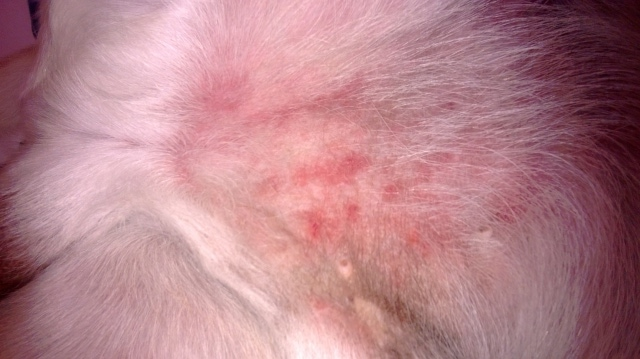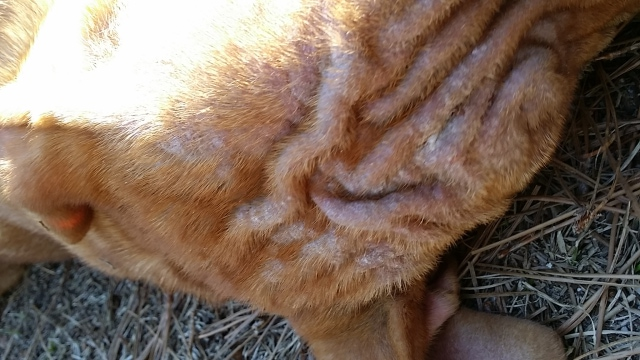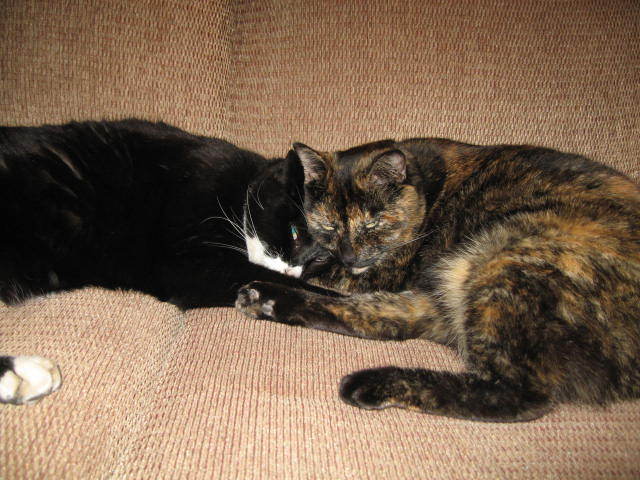QuestionQUESTION: I understand that without observation and testing, there's no way to know for certain what is wrong with a cat. However, my lovely foster, Tesla, is extremely frightened of vehicles and her cat carrier. I have been working on her with them, but would rather not undo all the hard work on a run to a new, stressful place only a short while after I got her!
The cat herself was touted to be 'part Siamese', but if this is the case, it is fairly deep in her bloodline. I would estimate her at between 3-7 years old, overweight (she came to me as a fat cat), very outgoing and friendly but with a large number of 'odd quirks'.
Since the first days of coming out from under the couch, Tesla has been so named for her series of bizarre behaviours. Petting her along her back down at her hindquarters would often trigger a full ears-back and yowling response, though she would always return for further petting; it wasn't a dislike of being touched but in being touched in a specific place/way. She has extremely manic bouts, where she will seem to be following something with her head and eyes, as if she were watching a fly that weren't actually there. She has wild eyes, and bouts of manic energy, moving around jerkily and quickly, sometimes accompanied by mad running about. She shows some uncoordination in her hind end, to where she trips over her own hind feet, but no difficulty in getting up, no limping, and no signs of pain (other than the above-mentioned dislike for having it touched).
In discussion with another AllExpert, neurological problems were brought up, and I was able to find a small 'bite' of info about this syndrome there. However, I have been unable to find anything detailed just yet to be able to do some better comparisons. So I'm wondering three things.
1) Does this sound like a possible case to you? Many of the 'signs' are there, but with as little info as I was able to find, I'm still working a bit blind.
2) Can you offer me more information on the Syndrome so I know what else I may want to look for, if so?
and 3) If it does *not*, does this sound like something I should be concerned enough with to hasten her vet visit, or continue giving her the time to get used to things?
ANSWER: Try -
Would you mind clarifying what you mean by FSH? In veterinary medicine there are many disease/conditions that are abbreviated by FSH. Please tell me which one you are referring and I will be happy to answer your question.
Best Regards,
Charlotte Sherrell, DVM
---------- FOLLOW-UP ----------
QUESTION: Ahem. Whoops. :)
For one, I actually mistyped the name. It should have been FHS.
Secondly, you're right. I should've been more exact. I think I was a little panicky, though! I've just been a little worried about my girl.
The syndrome I was looking for information on is 'Feline Hyperesthesia Syndrome', or 'Rippling Skin Disorder'.
AnswerHi Trey -
Thanks for the response. The symptoms you describe do sound a bit like your cat may have the hyperesthesia syndrome. This syndrome is a bit vague in that it is fairly newly recognized (about 15 years ago) and encompasses a number of clinical signs some that are related, some that appear to not be related.
If she appears to be following a fly when you are scratching her back end, she is probably very itchy back there. The itchiness may be due to fleas, dry skin or other factors, such as food allergy. You may have noticed that she also tries to bite or nibble on something while you are scratching her hind area. That is a very common reaction that she cannot really control. For some reason, cats just have to chew on something when they are being rubbed or scratched in that area. They usually will not bite their owner, but use caution as they have to bite something.
You must first rule out any other factors that may cause your cat's skin to be irritated. External parasites (fleas,ticks, etc),food allergy, and seasonal allergies can all cause the reaction you are describing. Once these factors have been ruled out, then it is safe to say that the cat may have Feline Hyperestheia Syndrome which is somewhat of a rare condition.
Have your veterinarian evaluate your kitty. She/he can help you to rule out the factors mentioned above and help you with treatment if your cat is finally diagnosed with the hyperesthenia syndrome.
Best Regards,
Charlotte Sherrell, DVM

 Red Rashes all over his body
Question
Red Rash Red Rash
My pet had red
Red Rashes all over his body
Question
Red Rash Red Rash
My pet had red
 Skin Issues
Question
Head Chest neck
I have 2 dogs, bo
Skin Issues
Question
Head Chest neck
I have 2 dogs, bo
 Female Tortie cat 7 years old
Question
Sadie
My cat sadie gets a re-occuring sore in
Female Tortie cat 7 years old
Question
Sadie
My cat sadie gets a re-occuring sore in
 1front/1hind leg poralisis ina dog
QuestionQUESTION: Hello,
I have a 9 year old Hairless C
1front/1hind leg poralisis ina dog
QuestionQUESTION: Hello,
I have a 9 year old Hairless C
 Bloody Hair Ball
Question
My Little Girl
My indoor cat vomited up a very
Bloody Hair Ball
Question
My Little Girl
My indoor cat vomited up a very